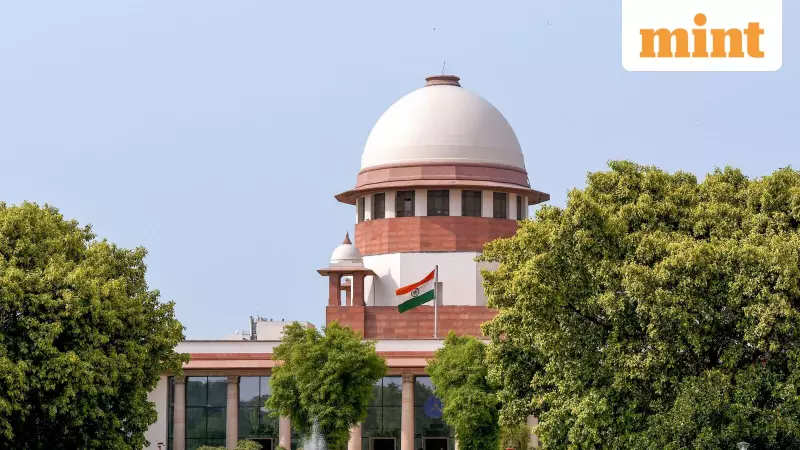
Supreme Court Concludes Hearing on Crucial Spectrum Dispute
The Supreme Court of India has reserved its judgment on a critical issue concerning the treatment of telecom spectrum held by the insolvent companies Aircel and Reliance Communications (RCom) under the Insolvency and Bankruptcy Code (IBC). The court concluded its hearing on Thursday after listening to extensive arguments from all parties involved.
The legal battle involves a direct challenge to a 2021 order from the National Company Law Appellate Tribunal (NCLAT). This order had previously ruled that spectrum could only be transferred or sold as part of an insolvency resolution plan after the concerned telecom operator had cleared all outstanding government dues.
Core Questions: Government Asset or Monetizable Right?
At the heart of this complex case lie two fundamental questions. The first is whether telecom spectrum, a natural resource, ultimately belongs to the government or the operator. The second question is whether an operator's right to use this spectrum, granted under a government licence, qualifies as an asset that can be monetized to pay off creditors during insolvency proceedings.
Representing the resolution professional for Reliance Telecom Limited, a subsidiary of RCom, senior advocate Gopal Jain presented a strong case. He argued that the government, by participating in the insolvency process and filing a proof of claim, had accepted the authority of the IBC. "Under the scheme of the IBC, the central government is squarely within its four corners," Jain told the court.
He emphasized that stripping a telecom company of its spectrum and licence would render it a hollow entity, making any successful resolution impossible. "…if you take away the license and the spectrum, it's a husk. No resolution will take place," he stated, warning that such an action would defeat the very purpose of the IBC.
A Clash of Titans: Lenders vs. Government
The State Bank of India (SBI), a leading lender to these companies, has firmly supported the position that spectrum should be treated as an intangible asset. SBI argues that this asset must be available for monetization within the insolvency process to maximize the recovery of their dues.
However, this stance puts them in direct opposition to the Indian government. The government, represented by Attorney General R. Venkataramani, maintained that spectrum is a state-owned resource held in trust for the public. It argued that a licence merely grants permission to use the spectrum and that this resource does not fall under the purview of the IBC. "The interim resolution professional (IRP) in the course of any proceedings in IBC, cannot reach out to this asset (spectrum)," Venkataramani asserted.
Lenders have issued a stark warning, contending that without the ability to monetize the spectrum, both Aircel and RCom would be forced into liquidation. This outcome would lead to substantial financial losses for banks, their employees, and other creditors. The government, on the other hand, insists that if a telecom company defaults on statutory dues, the spectrum must revert to the government and cannot be sold.
The Supreme Court's forthcoming verdict is highly anticipated, as it will provide crucial clarity on the status of spectrum in insolvency cases. This decision will have far-reaching consequences for the telecom sector, the banking industry, and the application of the IBC to natural resources.






